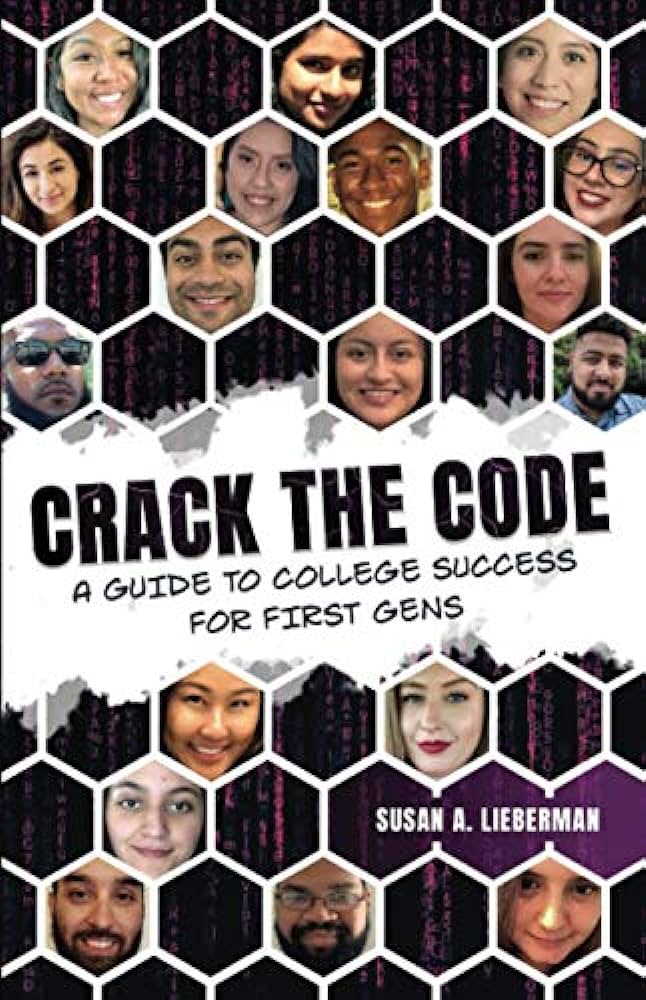Contents
First year is the initial year of a college or university program. It is a crucial period for students to adapt to their new environment, establish connections, and lay the foundation for their academic and personal growth.
During this year, students undergo a series of challenges, such as adjusting to the workload, managing their time effectively, building new friendships, and exploring various opportunities. It is a time to learn, discover one’s passions, and make important decisions regarding their future career paths.
While it can be overwhelming, the first year of college also provides a unique and exciting experience that shapes students’ lives and sets the stage for their future endeavors. Embracing the challenges and opportunities presented during this phase can contribute significantly to their overall success in college and beyond.

Credit: issuu.com
Setting Yourself Up For Success
In your first year, setting yourself up for success requires careful planning, cultivating positive habits, and staying focused on your goals. Building a strong foundation early on will pave the way for future achievements and growth.
Starting your first year of college can be both exciting and overwhelming. It’s a time of new beginnings and endless possibilities. To ensure that you make the most of this important year, it’s crucial to set yourself up for success.
This means making wise decisions about your major, taking advantage of campus resources, and building a supportive network.
Choosing The Right Major:
- Explore your interests: Take the time to discover your passions and interests. Consider what subjects or fields you excel in and enjoy learning about.
- Research job prospects: Look into the career opportunities and growth potential in different majors. Think about how your chosen major aligns with your long-term goals.
- Seek guidance: Reach out to academic advisors, professors, and professionals in the field you’re interested in. Their insights can help you make an informed decision.
- Consider your strengths: Reflect on your strengths and skills. Choose a major that plays to your strengths and allows you to thrive academically.
Maximizing Campus Resources:
- Utilize the library: The campus library is a treasure trove of knowledge. Take advantage of the vast collection of books, journals, and online resources available to you.
- Visit the career center: The career center offers valuable resources such as resume assistance, interview preparation, and job/internship opportunities. Make the most of these services to enhance your future prospects.
- Join student organizations: Getting involved in student organizations can provide countless opportunities for personal and professional growth. Look for clubs related to your major or explore new interests.
- Take advantage of tutoring services: If you find yourself struggling with certain subjects, don’t hesitate to seek help. Many colleges offer tutoring services to support students in their academic journey.
Building A Supportive Network:
- Connect with peers: Forming connections with fellow students can make your college experience more enjoyable and enriching. Join study groups, participate in group projects, and engage in social activities.
- Seek mentorship: Don’t hesitate to build relationships with professors or professionals in fields of interest. Their guidance and support can be invaluable throughout your college journey.
- Attend campus events: Make it a priority to attend campus events and activities. This will help you meet new people, broaden your horizons, and find like-minded individuals.
- Embrace diversity: College campuses are often diverse and inclusive spaces. Take advantage of this by engaging with individuals from different backgrounds and perspectives.
Your first year of college lays the foundation for the years to come. By choosing the right major, maximizing campus resources, and building a supportive network, you’re setting yourself up for success. Embrace the opportunities that lie ahead and make the most of this exciting chapter in your life.
Navigating Academic Challenges
Navigating academic challenges in your first year can be daunting, but with proper guidance and support, you can overcome hurdles and achieve success. Discover effective strategies to overcome common obstacles and make the most of your initial college experience.
For many students, the first year of college or university can be a whirlwind of new experiences and exciting opportunities. However, it can also present a unique set of challenges, especially when it comes to academics. In order to succeed in your studies, it’s important to develop effective strategies for managing your time, developing study habits, and overcoming procrastination.
In this section, we will explore these three key aspects of navigating academic challenges in your first year.
Effective Time Management
Time management is essential in college or university, where you’ll have to balance classes, assignments, and extracurricular activities. Here are some tips to help you manage your time effectively:
- Create a schedule: Start by creating a weekly schedule that includes all of your classes, study time, and other commitments. This will help you visualize how to allocate your time efficiently.
- Prioritize tasks: Identify the most important tasks and tackle them first. Break down larger assignments into smaller, manageable tasks and set deadlines for each one.
- Avoid multitasking: Contrary to popular belief, multitasking can actually hinder productivity. Focus on one task at a time to ensure maximum concentration and efficiency.
- Take breaks: It’s important to give your brain some rest. Plan short breaks during your study sessions to recharge and maintain focus.
Developing Study Strategies
Developing effective study strategies is crucial for academic success. Here are some strategies to consider:
- Find your learning style: Experiment with different study methods to discover what works best for you. Are you a visual learner who benefits from diagrams and charts? Or do you prefer auditory learning through discussions or recordings?
- Create a study routine: Establish a consistent study routine that works with your schedule. This will help you build discipline and make studying a regular habit.
- Use active learning techniques: Instead of passively reading and highlighting, engage with the material by taking notes, summarizing concepts in your own words, or teaching the material to someone else.
- Seek help when needed: Don’t hesitate to reach out to professors, teaching assistants, or classmates if you’re struggling with certain topics. They can provide valuable insights and support.
Overcoming Procrastination
Procrastination can be a major obstacle to academic success. Here are some techniques to help you overcome it:
- Break tasks into smaller steps: Procrastination often stems from feeling overwhelmed. Break down tasks into smaller, manageable steps to make them more approachable.
- Set realistic goals: Set specific goals for each study session or task. This will provide a clear sense of direction and accomplishment.
- Minimize distractions: Identify and minimize distractions around you, such as turning off notifications on your phone or finding a quiet study space.
- Use timers or apps: Consider using timers or productivity apps that can help you stay focused and track your progress.
By implementing effective time management strategies, developing study routines, and overcoming procrastination, you’ll be better equipped to navigate the academic challenges of your first year. Remember, success comes with practice and dedication. Stay motivated, keep improving your study habits, and strive for excellence.
Excelling In Social And Personal Growth
Embark on a transformative first year of social and personal growth, unlocking your potential and embracing new experiences. Discover a world of opportunities as you navigate the path to self-discovery and excellence.
Balancing Academics and Social Life:
- It’s crucial to strike a balance between academic responsibilities and a thriving social life during your first year.
- Allocate time wisely and prioritize tasks to avoid overwhelming yourself with coursework and missing out on social engagements.
- Take advantage of clubs, organizations, and events on campus to meet new people and form lasting friendships.
- Find a study group to engage in collaborative learning, enabling you to succeed academically while still enjoying social interactions.
Cultivating Healthy Habits:
- To ensure a successful first year, it’s essential to cultivate healthy habits that promote overall well-being.
- Prioritize self-care by getting enough sleep, eating nutritious meals, and engaging in regular exercise.
- Establish a routine that allows for structured study time, relaxation, and socializing to maintain a healthy work-life balance.
- Create a supportive environment by seeking out resources such as counseling services or wellness programs offered by your university.
Enhancing Communication Skills:
- Effective communication is a vital skill that will serve you well throughout your academic and personal life.
- Actively participate in class discussions, group projects, and presentations to improve your verbal communication skills.
- Take advantage of writing workshops or tutoring services to enhance your written communication abilities.
- Engage in networking opportunities both on and off-campus to expand your professional communication skills.
Remember, your first year is an exciting time for personal growth. By finding a balance between academics and social life, cultivating healthy habits, and enhancing your communication skills, you are setting the foundation for a successful and fulfilling college experience.
So, make the most of this opportunity to excel in every aspect of your personal and social growth!
Frequently Asked Questions For First Year
What Does First Year Mean?
The term “first year” refers to the initial year of a particular event, program, or academic course.
Should First Year Have A Hyphen?
No, the term “first year” should not have a hyphen.
What Is First Year Student?
A first-year student refers to someone who is attending their initial year of college or university.
Should Second Year Be Hyphenated?
No, second year should not be hyphenated.
Conclusion
The first year of any endeavor is a formative and transformative period. It is a time of excitement, growth, and challenges. Throughout this journey, we have explored the importance of setting realistic goals, staying committed, and adapting to changes. Building a strong foundation is crucial, and the lessons learned during this time will undoubtedly shape future success.
From celebrating achievements to learning from failures, each experience contributes to personal and professional development. In our first year, we have discovered the power of perseverance, the value of building relationships, and the need to continuously learn and evolve. As we reflect on the past year, we are filled with gratitude for the opportunity to embark on this journey.
With newfound wisdom and a renewed sense of purpose, we look forward to the next chapter, knowing that the lessons learned will forever guide us towards greater heights.









